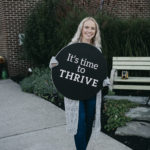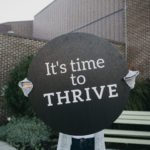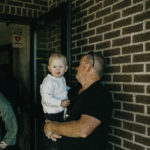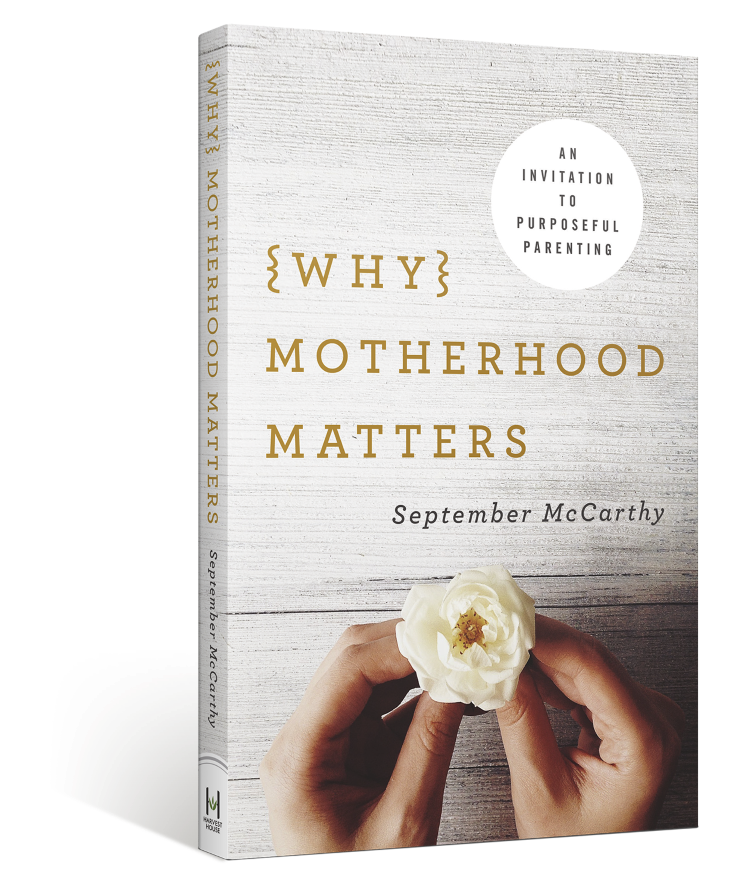I woke to a tiny voice calling my name from the top of the stairs again.
Perched there, she is backlit by one tiny nightlight. I climb the stairs and see only a silhouette of blonde hair and a pink nightgown. She waves at me in standard passerby fashion.
“I just yawn need another hug and another kiss, yawn.” It’s 3 o’clock in the morning, I think.
I gather her up in my arms and press my face into her flowery hair– but before I can ask her if she had a bad dream, she is already breathing out rhythmic sleep. She’s resting. Relaxed enough to conk out in my arms before reaching her clean, crisp sheets.
Because she didn’t truly need anything, except to be held. At four years old, she was willing to wait alone in partial darkness just to be reminded that she wasn’t really alone. Being known in the night was enough to calm the uncertainty of a dark and quiet house.
Together we know that being the first point of need and contact of our young children can often be a suffocating fact. They want, no, need to be where we are. Literally, on the same square inch of earth where we sit. They have claim to our glasses of water, our lunch– even our moments in the shower. They don’t just need us to hold their hands, but also the doll they brought into the store, and the rasher of bacon they aren’t quite finished with. It can feel like a lot to be known that well. That level of closeness brings with it a deep knowledge of not only the good points of ourselves and our children– but the not so pretty points as well. And it isn’t always an ethereal Instagram photo, but a battle of imperfect humans parenting imperfect smaller humans.
I see it clearly as I tuck her beneath the duvet, rub her back for a moment and then close the door behind me. I feel it as my heart swells with the love that only comes from knowing well. Even when I may be a bit smothered in my always-on-duty role, I see it.
Love does not thrive in spite of real knowing; it grows deeper still because of it.
It is most evident when I take a moment and glance at the state of my own self– and see clearly that I am known very well by a God I seek to know better. He doesn’t grumble when my tiny voice calls out in the night. He doesn’t have to look past the bedhead and the morning breath and the sinfulness, but He does. J.I. Packer says in his book Knowing God,
What matters supremely, is not… that I know God, but the larger fact that underlies it– that He knows me… there is no moment when His eye is off me, or His attention distracted from me, and no moment, therefore when His care falters.
And I desperately need that knowledge in my mothering. I need the freedom that comes from the fact that this is not my show. We are only the tools in His hand.
Some days I am a bit of sandpaper, smoothing away edges that should go. Other days I’m a thick blanket enveloping them in the understanding that they are loved beyond belief. It is God’s pursuit of drawing them to Himself to be known. But it is our willingness to be the tool that helps them learn it— helps them grasp the fact that He truly seeks them.
And it helps, dear Mama– it truly helps to know that He fills us to be emptied and then fills us again. When we feel like an overused cloth, wrung out too many times– it helps to remember that He knows us deeply and allows Himself to be known as well. He makes us the flesh and blood arms that hold them as they learn of One who came to save us all. It may often seem like a tall order of sacrifice, a grave request— but it is truly a high calling. One that requires being known ourselves by Him.











